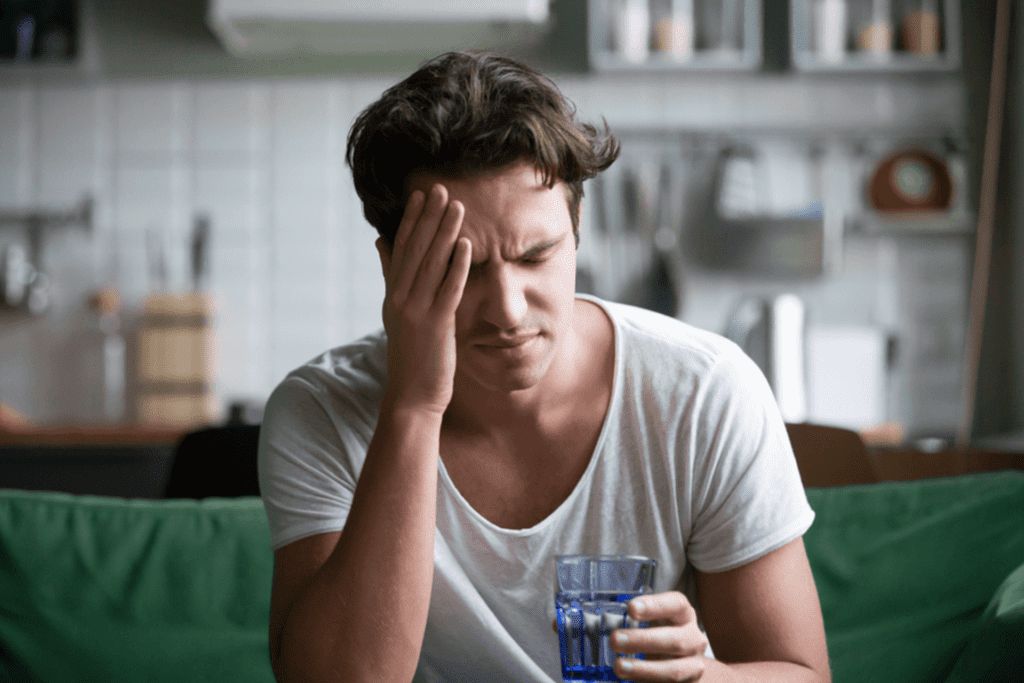Ongoing use of opiates like heroin leads to the development of tolerance and physical dependence on the drug. If you become dependent on opiates, you will experience aggravating withdrawal symptoms when you discontinue use of the narcotic.
Opiates are chemical compounds that are extracted from the sap and fibers of opium poppies. Opiates include heroin, opium, codeine, and morphine. Opioids, by contrast, are chemical compounds that are fully or partially synthesized in labs – oxycodone, hydrocodone, or fentanyl, for instance.
Opiate withdrawal symptoms usually present within 6 to 24 hours of the last use, peaking after 1 to 3 days. Most opiate withdrawal symptoms subside after 4 to 7 days, although fatigue and feelings of anxiety or depression, may persist. Psychological symptoms like insomnia, mood swings, and irritability may linger for up to 2 weeks
How Long Can Opiate Withdrawal Last?
Opiate withdrawal typically occurs within hours of the last dose of a drug like heroin. Symptoms may present as soon as 6 hours after the last dose or the onset of withdrawal may occur after 24 hours of abstinence from opioids. The onset of acute, short-term withdrawal symptoms will vary from person to person, according to SAMHSA (Substance Abuse and Mental Health Services Administration).
In most cases, the symptoms of acute opiate withdrawal will last from 3 to 10 days. The following factors influence the onset and duration of opiate withdrawal:
- Frequency of opiate use
- Amount of opiates used
- Duration of opiate use
- Physical health
- Mental health
- Use of other addictive substances or medications

What is Opiate Withdrawal?
The sustained use of heroin or any other opiate can trigger changes in behavior and alterations in the brain. When you take opiates, the drug attaches to the mu-opioid receptors in the brain and CNS (central nervous system). Opiates mimic the effects of naturally occurring opioids (endogenous opioids), activating certain cells and disrupting signaling to the brain. This can impact core functions like breathing, heart rate, and sleeping.
Over time, the brain adapts to the continuous presence of opiates. As tolerance develops, you will require more opiates or more frequent doses to deliver the initial effects. If you increase your consumption of opiates, this will accelerate the development of physical dependence. Dependence is characterized by the presentation of withdrawal symptoms in the absence of the substance.
While most symptoms of opiate withdrawal are not life-threatening, the experience can be intensely unpleasant and painful, leading many people to continue abusing opiates rather than undergoing opiate detox. That said, heroin withdrawal is associated with vomiting and diarrhea during detox which can trigger dehydration and an imbalance of electrolytes, which can be life-threatening if unmanaged.
Signs
Several factors can influence the nature and severity of the symptoms experienced during opiate withdrawal. These factors may include the duration of addiction, the type and amount of opiate taken, the method of drug use, the presence of multiple drug use, family history, and overall physical and mental health.
When opiate use is discontinued, the first sign of withdrawal is often a comedown, as the initial effects of the drug start to wear off and the brain chemistry returns to normal. If opiate use is not continued, withdrawal symptoms may eventually develop, which can involve both physical and mental symptoms associated with drug and alcohol withdrawal. It’s vital to seek professional help and guidance to manage withdrawal symptoms safely and effectively.
Symptoms
The short-term symptoms associated with opiate withdrawal can so distressing and uncomfortable that many people detoxing from opiates in a nonclinical setting will relapse as a result. This can be especially dangerous due to decreased tolerance heightening the risk of opiate overdose.
The most common short-term opiate withdrawal symptoms include:
- Nausea
- Vomiting
- Diarrhea
- High blood pressure
- Rapid pulse
- Increased breathing rate
- Raised body temperature
- Insomnia
- Sweating
- Dilated pupils
- Muscle spasms
- Cramps
- Bone pain
Protracted opiate withdrawal symptoms may occur after the acute withdrawal period ends. Symptoms may include:
- Disrupted sleep patterns
- Depression
- Anxiety
- Fatigue
- Reduced interest in activities
- Irritability
- Memory loss
- Decreased attention and focus
- Difficulty making decisions
- Cravings for opiates

Opioids vs. Opiates
Opioids are synthetic or semi-synthetic substances that mimic the effects of natural opiates like morphine, codeine, and heroin. Opioids include:
- Oxycodone
- Hydrocodone
- Fentanyl
- Tramadol
Although opioids are commonly prescribed for pain relief, this class of drugs has a high potential for misuse and abuse, often leading to addiction or overdose.
The term “opiates” specifically refers to drugs that are derived from the opium poppy plant. Examples of opiates include:
- Heroin
- Morphine
- Codeine
Opiates have been used for pain relief for centuries, but this class of drugs is also associated with abuse and addiction.
So, all opiates are opioids, but not all opioids are opiates. Opioids can be synthetic or semi-synthetic, while opiates are naturally occurring substances derived from the opium poppy plant.
How Long Does Opioid Withdrawal Last?
The duration of withdrawal from opioids versus opiates can vary depending on various factors, including the level of dependence, the type and amount of drug used, and the duration of use. That said, the duration of opioid withdrawal is often longer than withdrawal from heroin or other opiates.
Heroin has a fairly short elimination half-life, which means that the drug is metabolized rapidly, leading to withdrawal symptoms that usually peak within a few days and subside within 7 to 10 days.
Withdrawal from long-acting opioids – morphine, buprenorphine, or oxycodone, for instance – can last significantly longer. Symptoms may linger for weeks or even months as these drugs stay in the body for longer.
Short-acting opioids like fentanyl trigger withdrawal symptoms within 8 to 24 hours that last for up to 10 days.
Long-acting opioids like methadone trigger withdrawal symptoms within 36 hours that last for 14 days or more.
Get Treatment for Opiate and Opioid Addiction at Gratitude Lodge
If you have developed an addiction to opiates like heroin or opioids like oxycodone, we can help you kickstart your recovery at Gratitude Lodge in Southern California.
Begin your opioid addiction treatment with our supervised medical detox program. Benefit from FDA-approved medications and continuous clinical care to streamline the withdrawal process. After a week or so of opiate withdrawal, you can move into one of these treatment programs for opioid use disorder:
- 30-day inpatient program
- Intensive outpatient program
- Dual diagnosis treatment program (for co-occurring disorders)
All treatment programs at Gratitude Lodge draw from a combination of science-based and holistic therapies, such as:
- Medication-assisted treatment
- Psychotherapy
- Group therapy
- Individual counseling
- Family therapy
- Holistic therapies
- Aftercare
Are you ready to move beyond opiate addiction? If so, call our admissions team today at 800-994-2184.




























